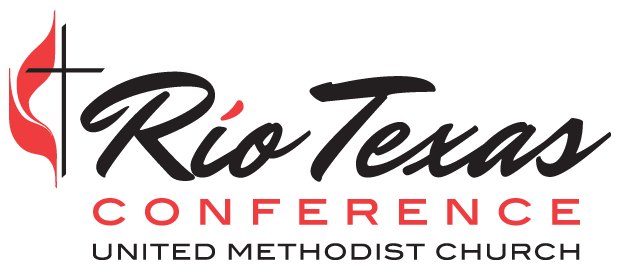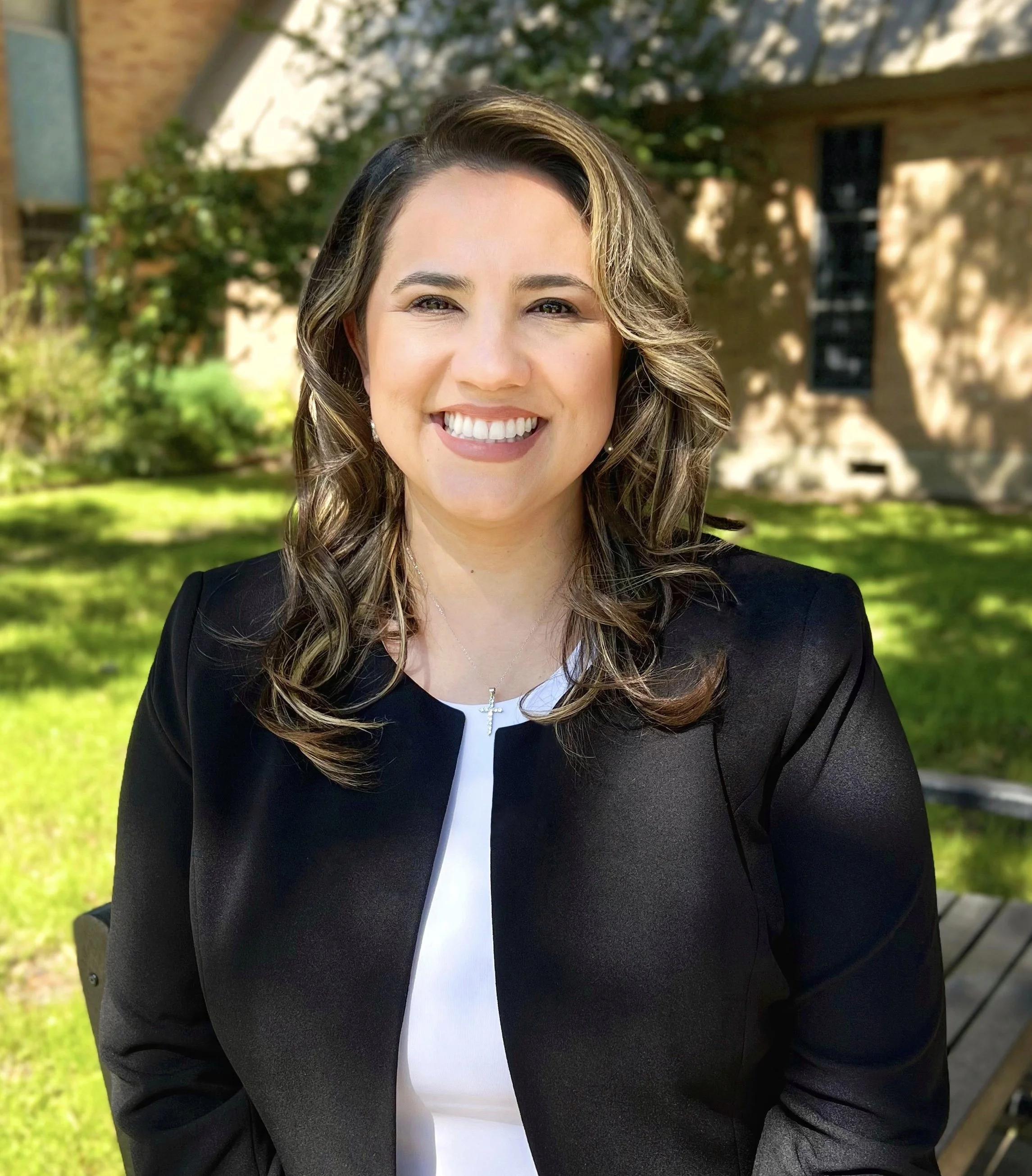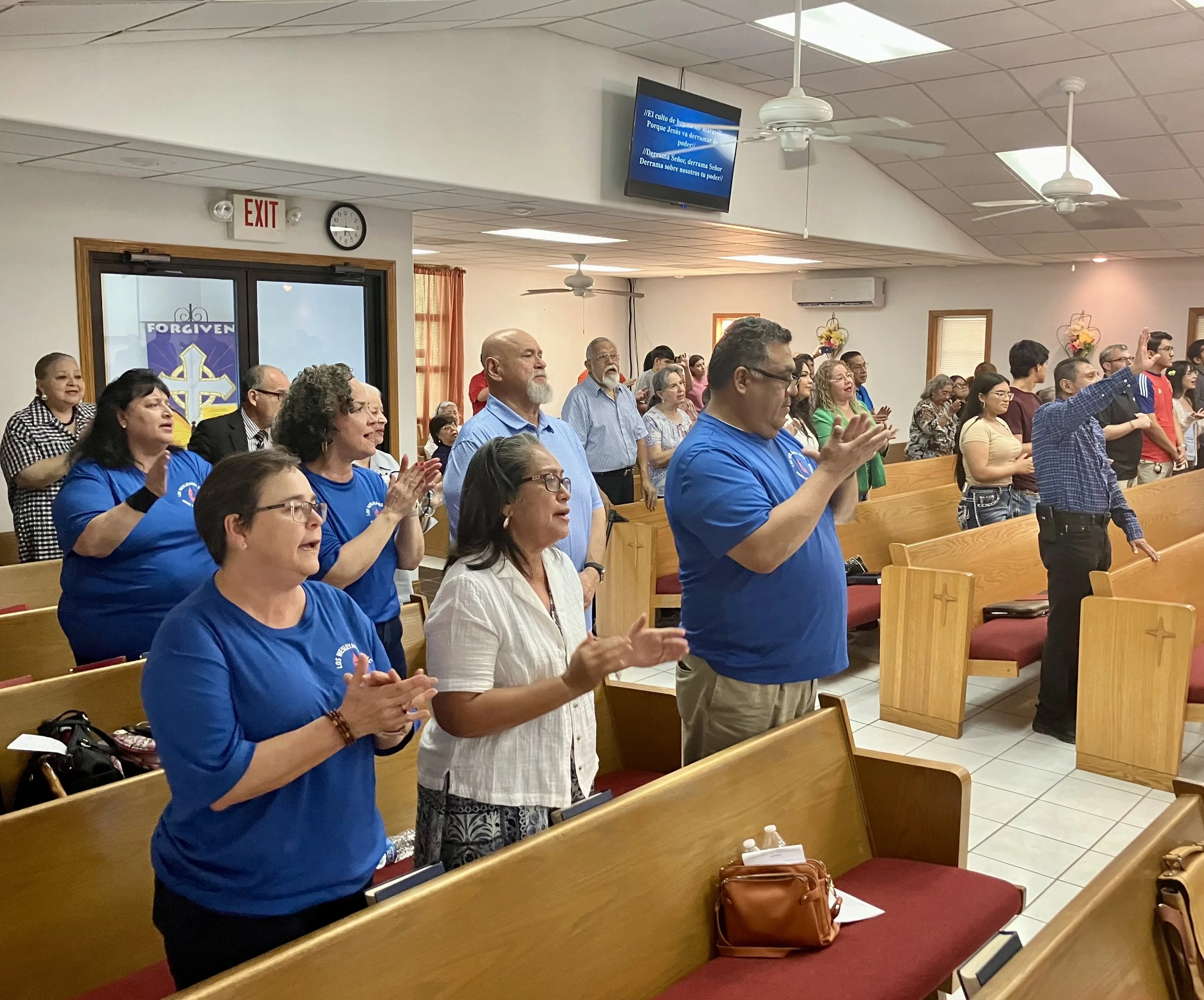Still Much Work Left to Do
/Story and Photos by Laura Bray
Two months since Harvey made landfall. Surely all the Early Response Team (ERT) work is done, right?
Wrong.
After six weeks in Victoria, teams have completed 106 chainsaw jobs, 29 cases of interior clean-up and tarped 49 roofs. Over 100 work orders remain open with more expected to come, which does not include work orders in the Coastal Bend area.
Team member Bob Dibble tops off a small tree.
A team from the Hill Country District, led by First UMC, Boerne member Bob Dibble recently completed a trip to Victoria. They focused primarily on chainsaw and debris removal work. Several team members have extensive disaster response experience; including responses to Hurricane Ike, flood relief in San Antonio, and clean-up after the Bastrop fires.
Owners offered cold drinks, served tacos for lunch, and helped remove fallen debris. The smell of gas fumes and sawdust float in the air.
An owner’s grandson helped to remove tree debris at one work site. The fallen tree had just barely missed the very humble travel trailer he lived in (fortunately, he was elsewhere during the storm). A banty rooster kept watch on the activity from the front porch. Afterwards, the grandson shared his moving story about falling away from God, being born again, and rebuilding his spiritual life–an inspiring sermon, team members agreed.
The grandson asked, “Why do you do this work?”
“God has greatly blessed us, so we want to bless others,” replied FUMC, Boerne member Vickie Huffman.
“We’re here to be the hands and feet of Christ.” said Dibble, “We are all called to help others.”
A crew from Oak Hill UMC, Austin arrived and brought two recovery teams and one ERT team. After unloading stacks of flood buckets, they visited two homeowners. They have been working for these families for several weeks. Now that the sodden drywall and insulation is gone, those survivors are ready for the repair process of flood damage. The cloying smell of things left wet too long wafted around, especially from the piles of debris still lining the streets.
Members of Oak Hill UMC measure a home so they know how much material to bring.
Rockport is still buzzing with recovery activity. Roofers are perched on many homes since you can’t fix the inside of a house until it has a functional lid. Fleets of large dump trucks and pickers crawled slowly along roads, scooping up the massive piles of debris. Many electrical trucks remain in the area. Most residents now have reliable power, but there is still a lot of “tweaking” to do. One substation just east of Rockport resembled a crumpled Erector set.
FUMC, Corpus Christi Incident Commander Jim Callis sent a team from Hyde Park, NY to Rattlesnake Point on Copano Bay. Before they headed out, Jim advised, “Only mess with the big debris piles with a long pole.”
One team member asked, “Why?”
"Because it's called 'Rattlesnake Point' for a reason," he replied. I’m betting they steered well clear.
Team member Rich Mergen brought along his front-end loader. Very handy for gathering cut brush and trees.
Some would wonder why they came all the way from New York. Team leader Terry Temple explained, “We saw the need and felt called to go. People just can’t do the necessary work themselves; they’re too attached. We make a difference and help homeowners take a step back toward normal living,” she said. “We like being part of the process of recovery.”
This team built a strong relationship with the families, especially one with four children. The eleven-year-old son proudly served as interpreter since his mother didn’t speak English.
“He did a better job than our paid translator in Haiti,” said Temple. “He felt good that he was able to help.”
Already, Dibble plans another trip to the area at the beginning of November, with more to follow. He wants to send three to four recovery teams per year from FUMC, Boerne. The extensive rebuilding work will take years to complete.
Plenty of opportunities are still available to help our neighbors affected by the storm:
Sign up for an ERT or chainsaw training here.
Sign up for Volunteers in Mission training to be ready when recovery work begins.
Donate funds through your church (Conference Advance 2057) or individually online or by sending to the Conference office.
Donate to UMCOR Advance 901670 to support ongoing relief and rebuilding efforts.
Note: at present, the Conference has reached capacity on flood buckets. Watch the Conference website for future calls to assemble flood buckets.
“The most rewarding thing is the families we work with,” said Huffman. “They are so appreciative of the help they are receiving. Their courage and strength amaze us.”























